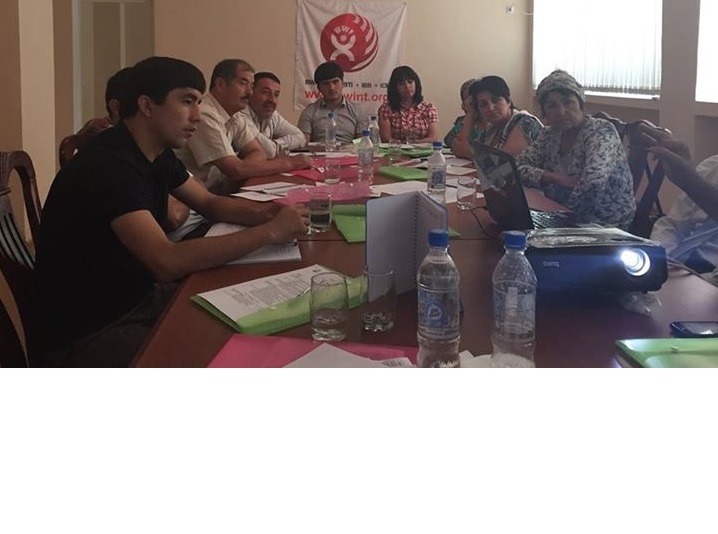Countries
Solidarity campaigns
Tajikistan: Migrant workers’ rights and the 2018 World Cup

On 26-27 August 2015 leaders and activists of the Building Materials Workers Union of Tajikistan came together from different regions in the country to discuss migrant workers’ rights protection and pre-departure training.
The economic situation in Tajikistan has become better over the last ten years. The level of poverty has remained high (34 per cent of the population), but in comparison with the same indicator ten years ago, it has decreased twice (from 62 to 34 per cent).
However, the situation in construction sector has remained very difficult. The government makes very few investments in the construction of public infrastructure and the number of private construction projects is also low. According to information from the trade union, 120 000 new construction workers graduate from schools and universities every year, while only 30 thousand jobs are available. Thus, the majority of construction workers do not have any choice but to look for a work abroad.
The main destination country for migrant workers in Tajikistan is still Russia. However, because of the current economic situation and amendments to the Russian migration legislation, the migration flows has reduced. In 2014, 670 800 thousand Tajiks migrated to Russia compared to 788 100 in 2013. The depreciation of the Russian currency twice reduced the income of migrant workers and in the same time new migration regulations substantially increased expenses of migrant workers to get legal employment status.
In 2018, Russia will host the FIFA World Cup, which will create thousands of new construction jobs in the eleven World Cup host cities. The participants concluded that because of the economic downturn and the new migration regulations in Russia, migrant workers who work on World Cup construction sites are in a very difficult situation and trade unions in Tajikistan need to strengthen their efforts to organize them and protect their rights.
The union is planning to set up special pre-departure trainings, develop educational materials and collaborate with Russian Construction and Building Materials Workers Union to organize workers on the World Cup projects.
The participants also discussed government reform of the migration law, current economic situations and its impact on labour migration, situation in construction sector in Tajikistan, labour migration to Russia and challenges that migrant workers face.
The current migration law in Tajikistan does not reflect needs of migrant workers since it was adopted in 1990s when the main migration issue was refugees from Afghanistan. The new law should cover issues of Tajik migrant workers who go to work abroad and regulate role of private employment agencies in this process. The trade union leaders agreed to play an active role in lobbying migrant workers’ interests in the new law.
Source: BWI
